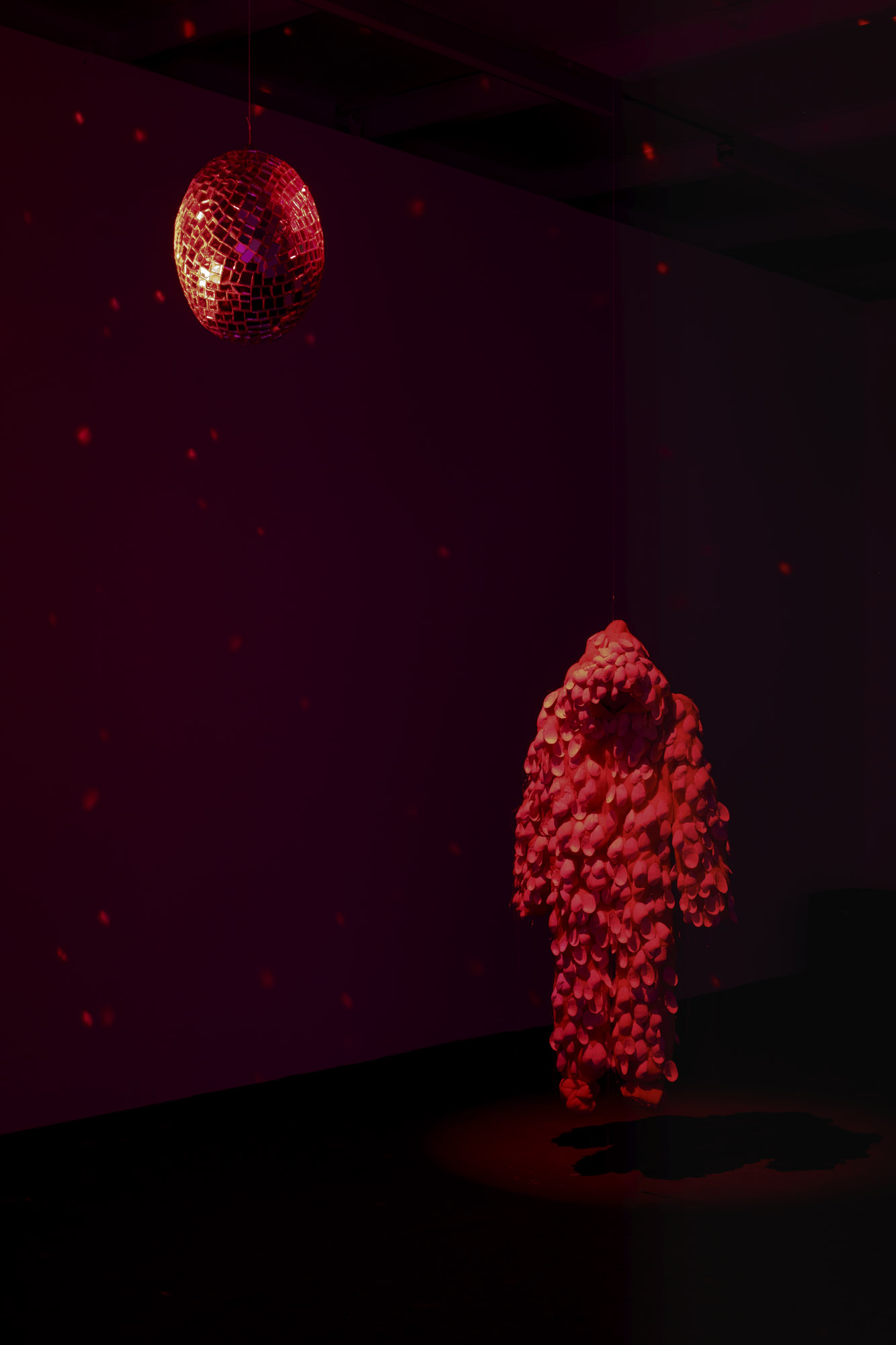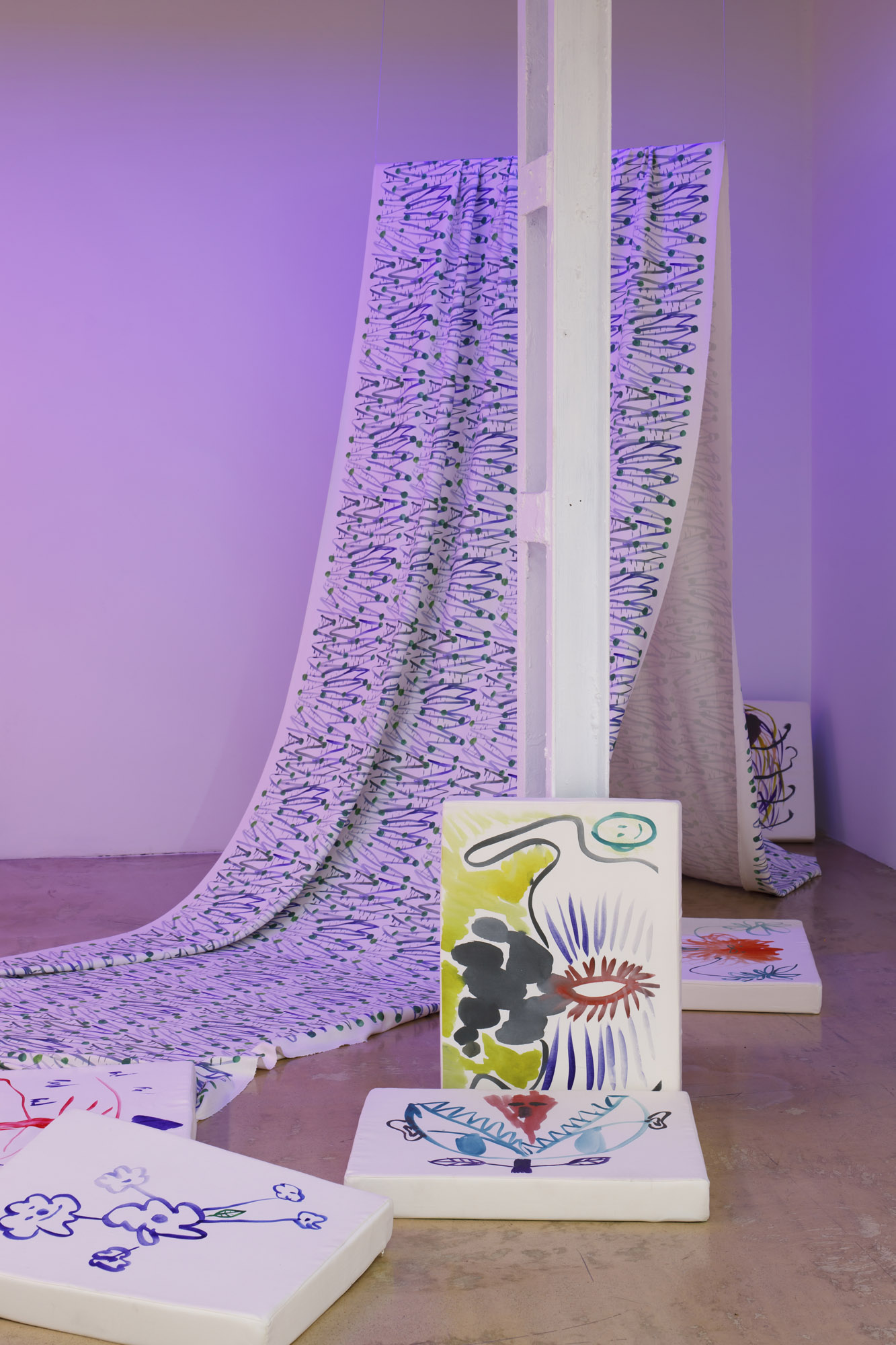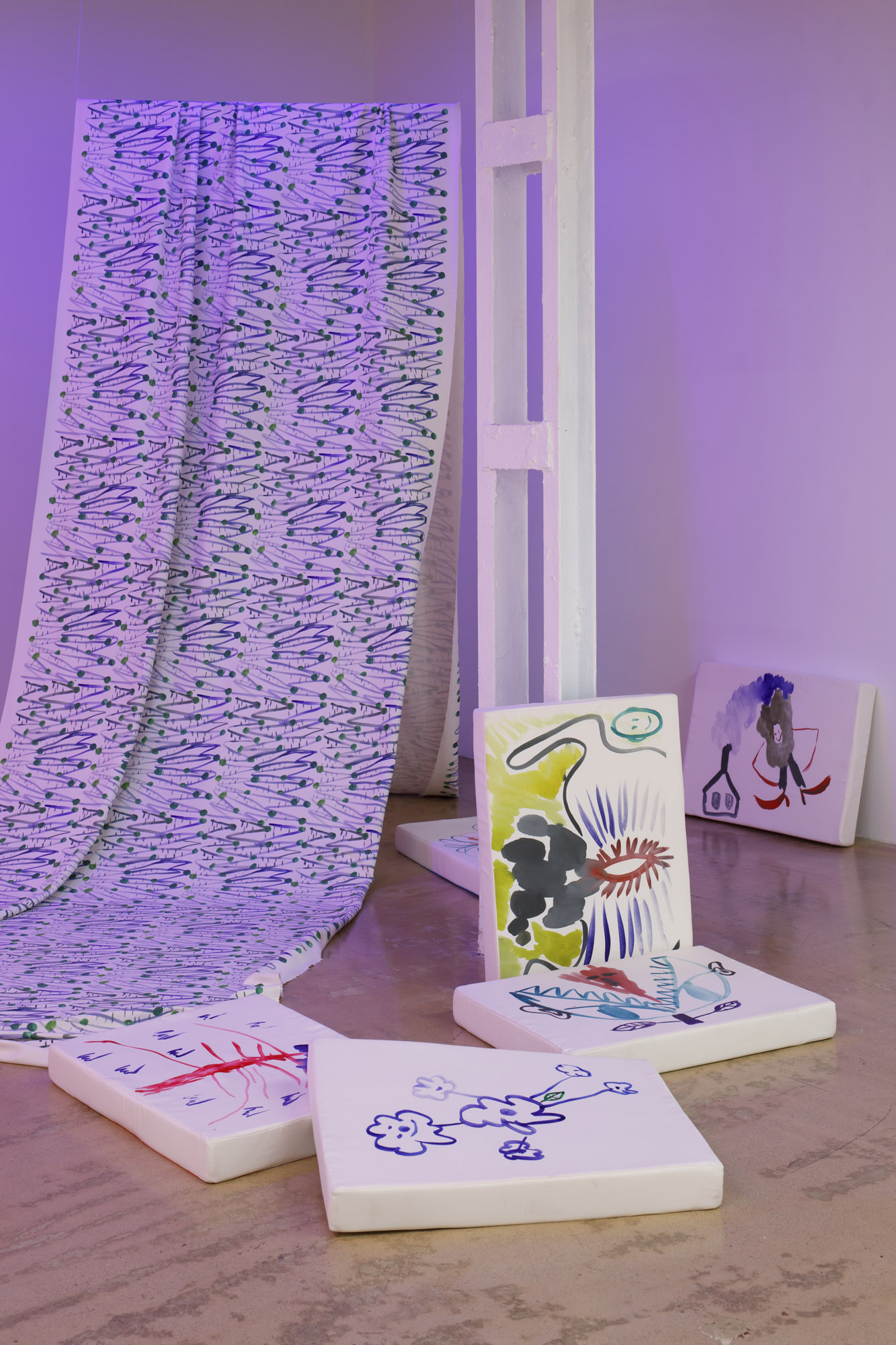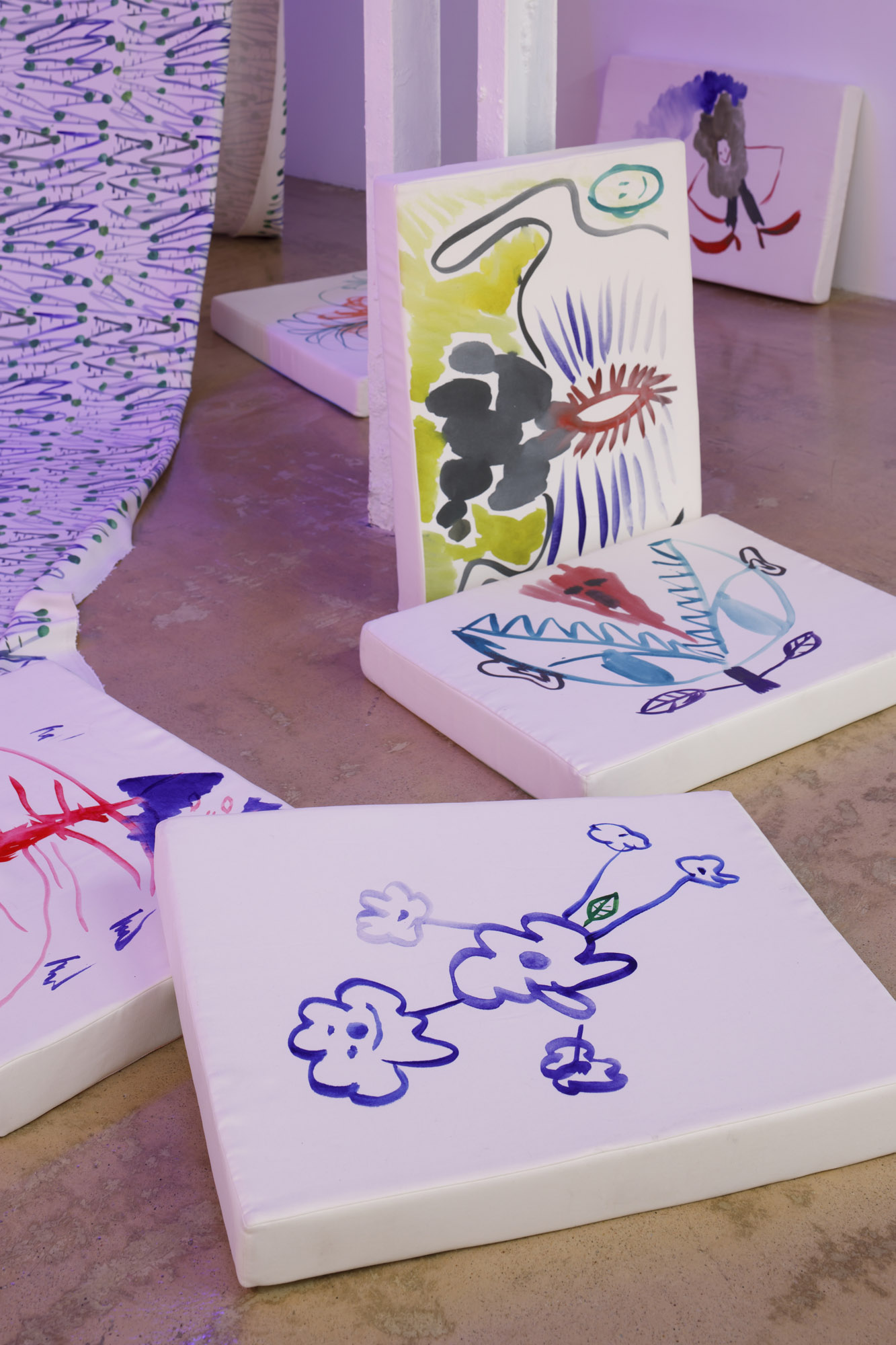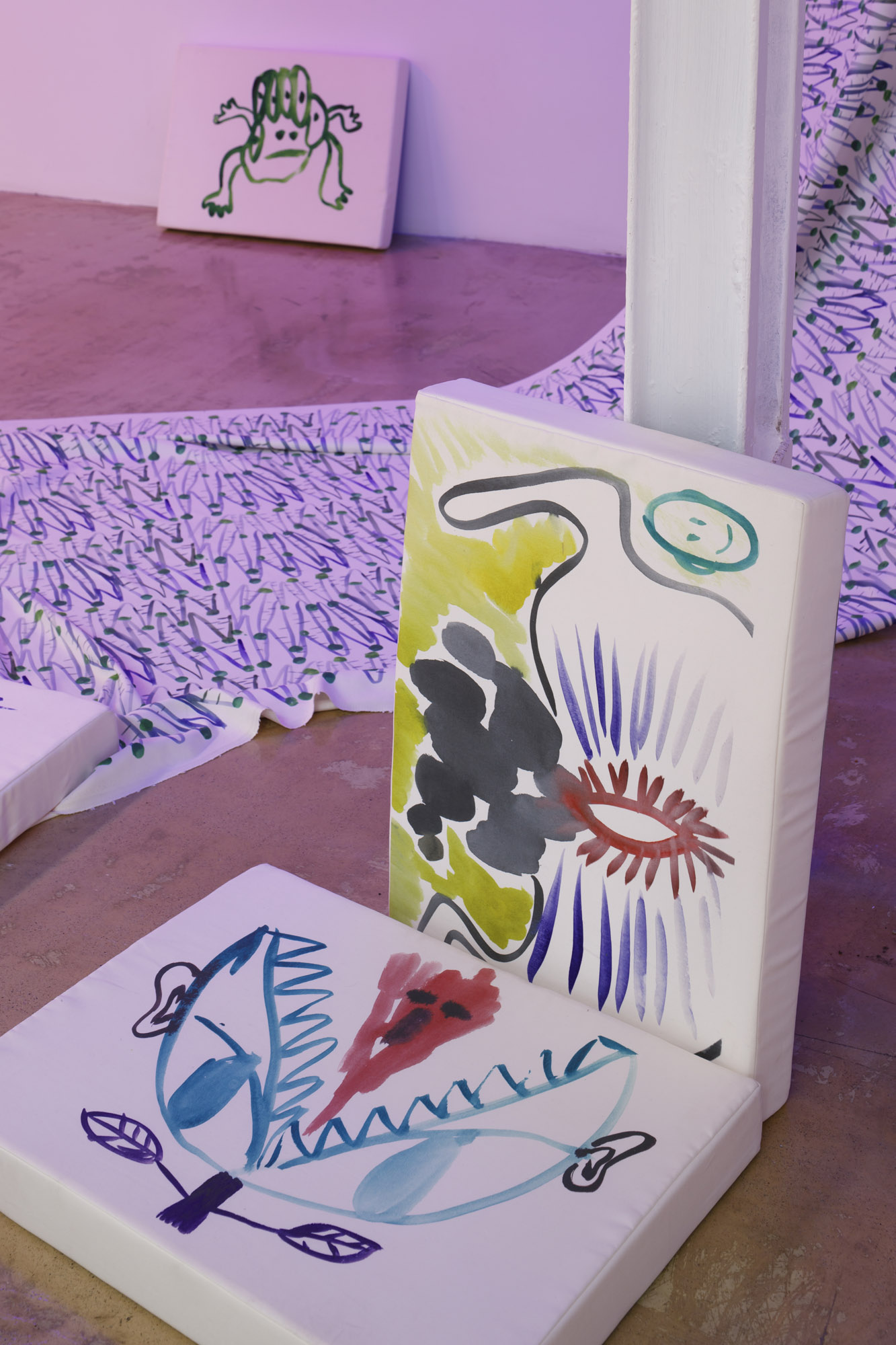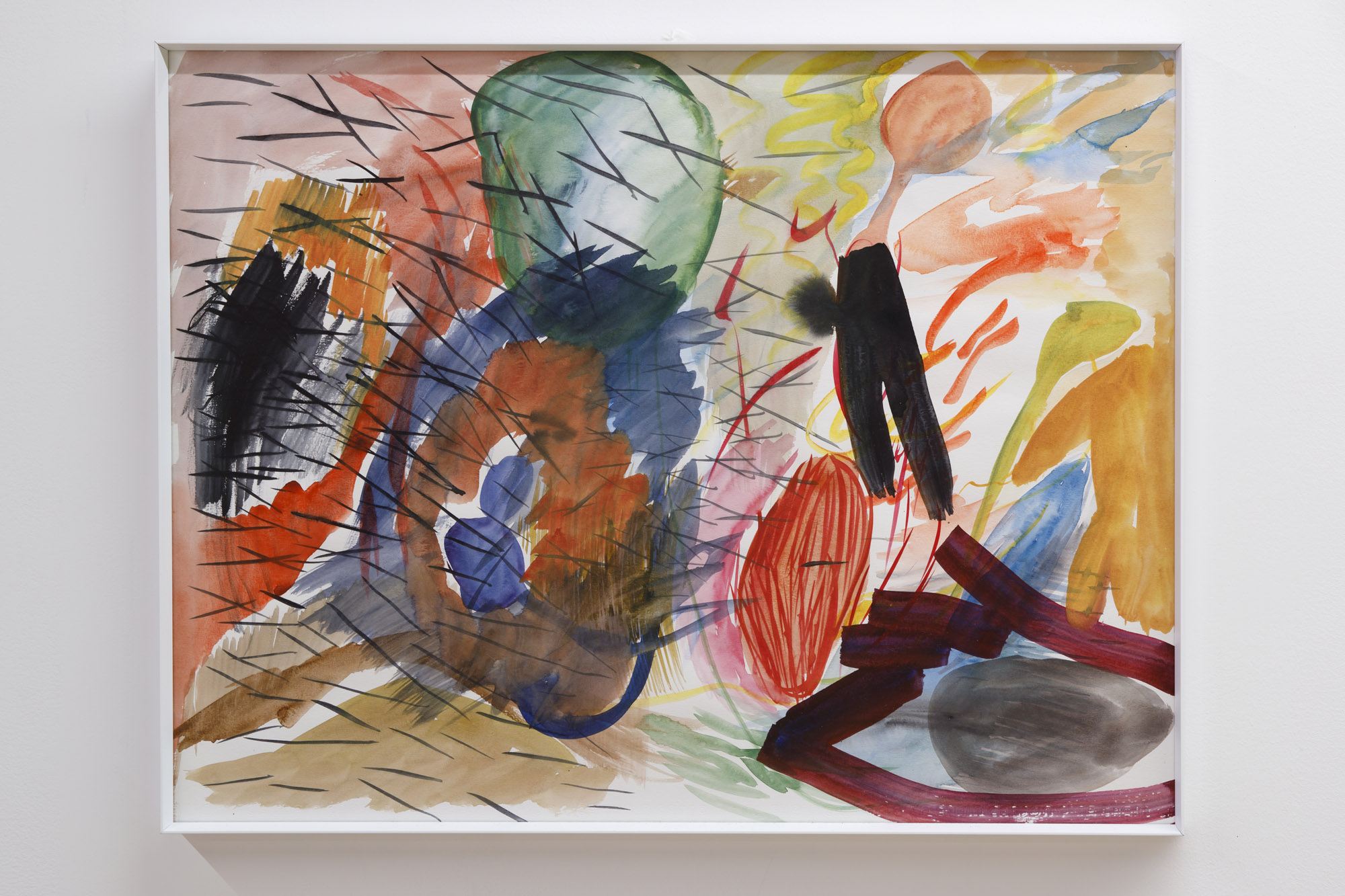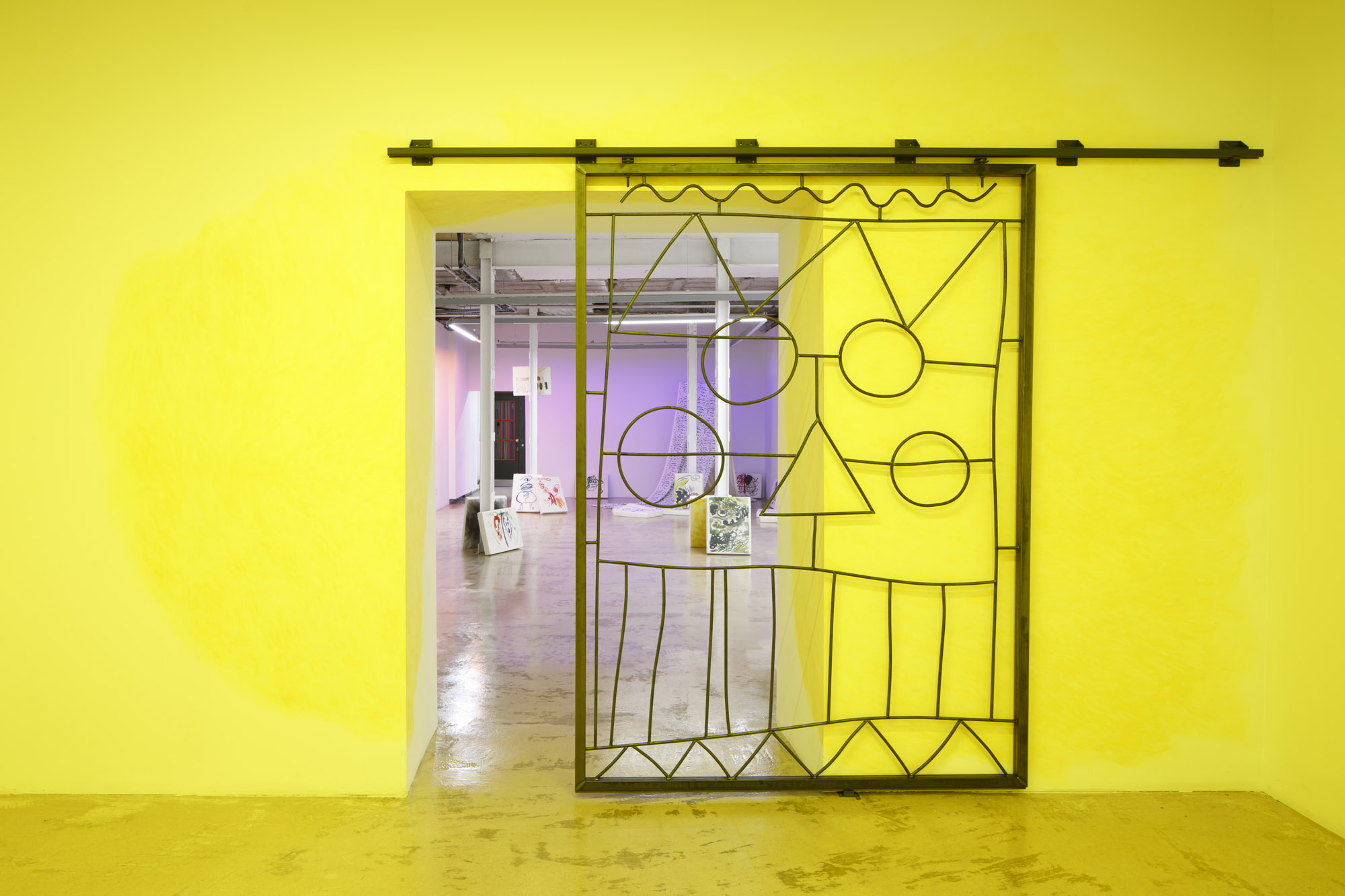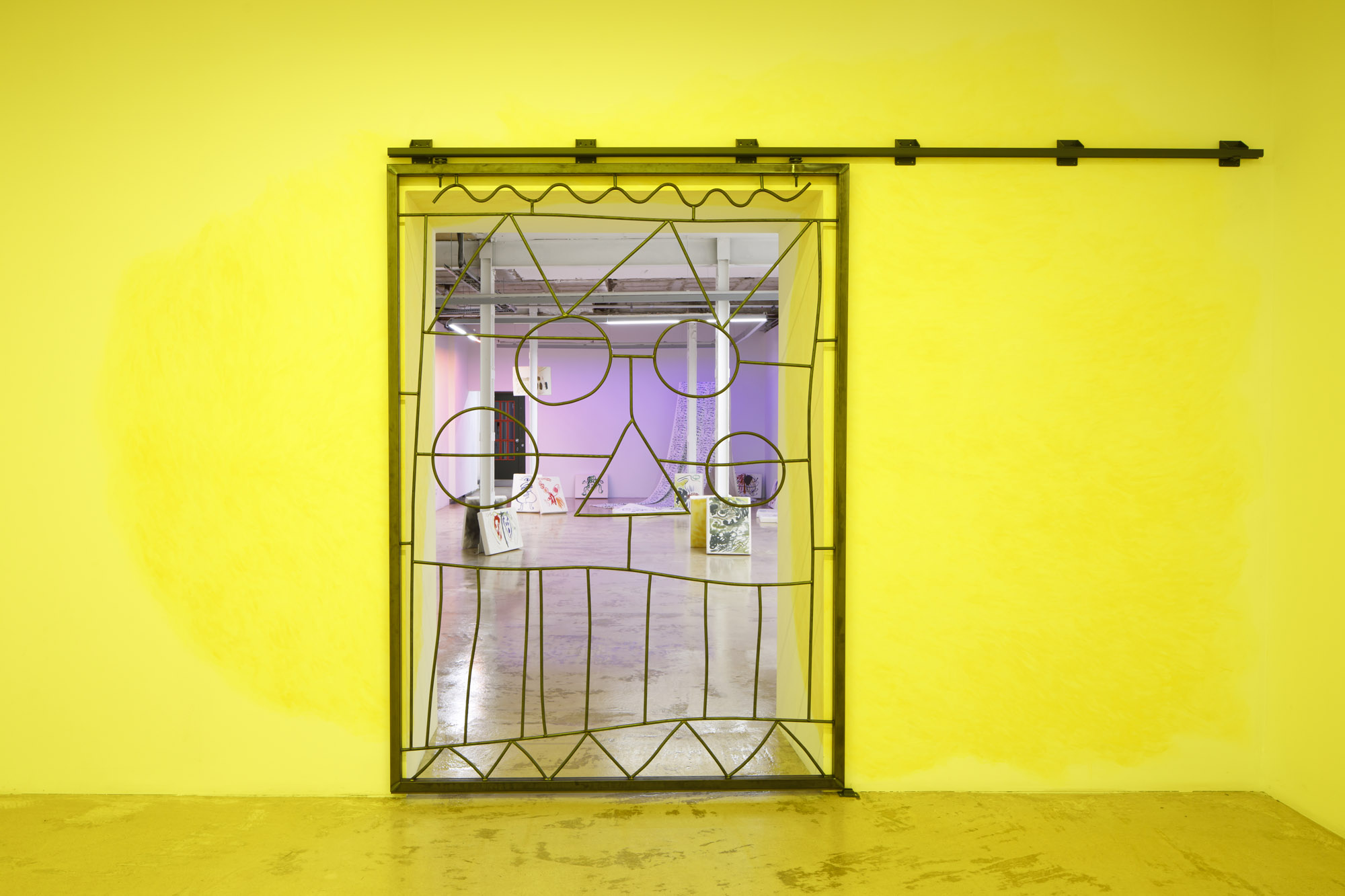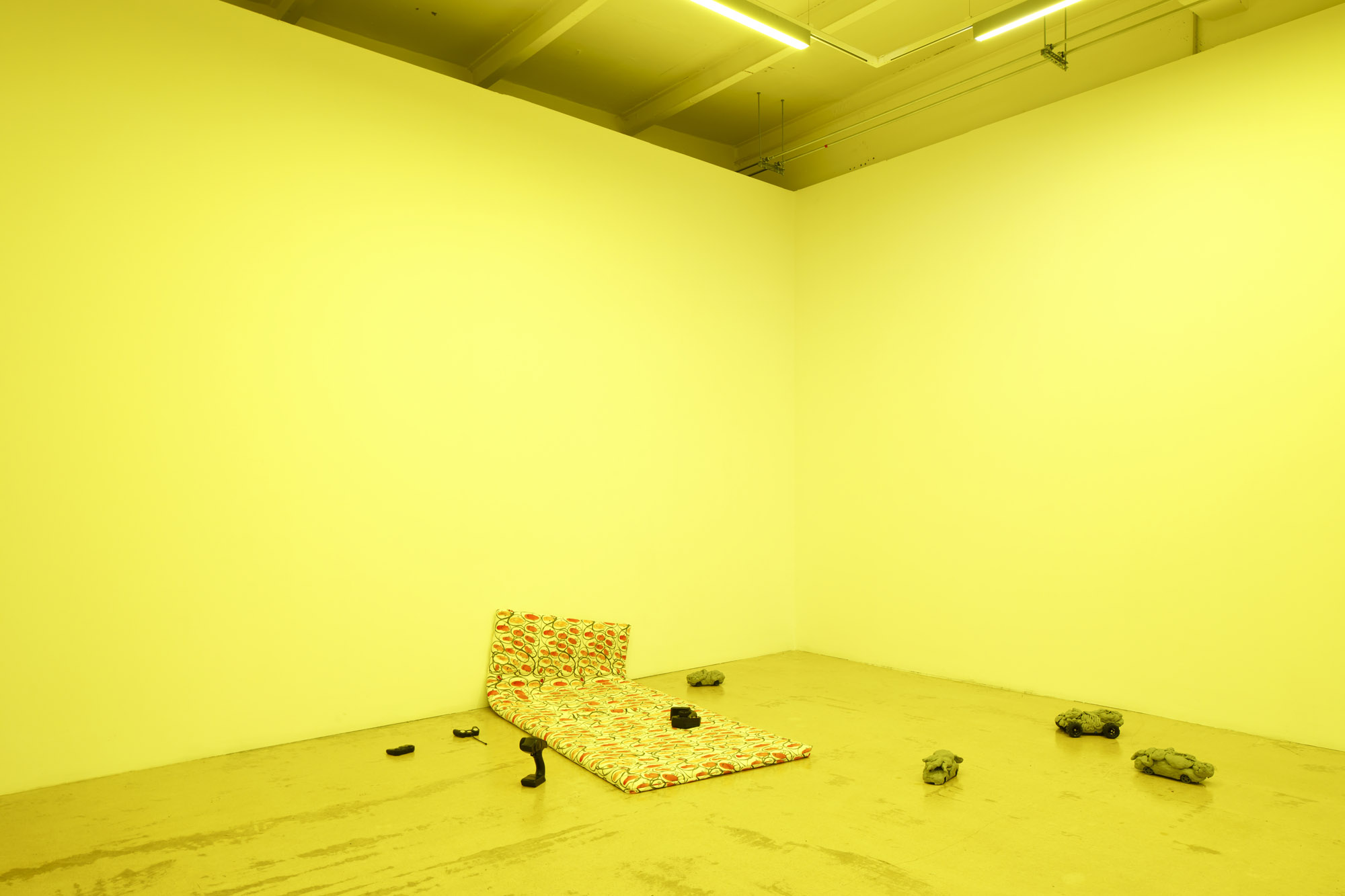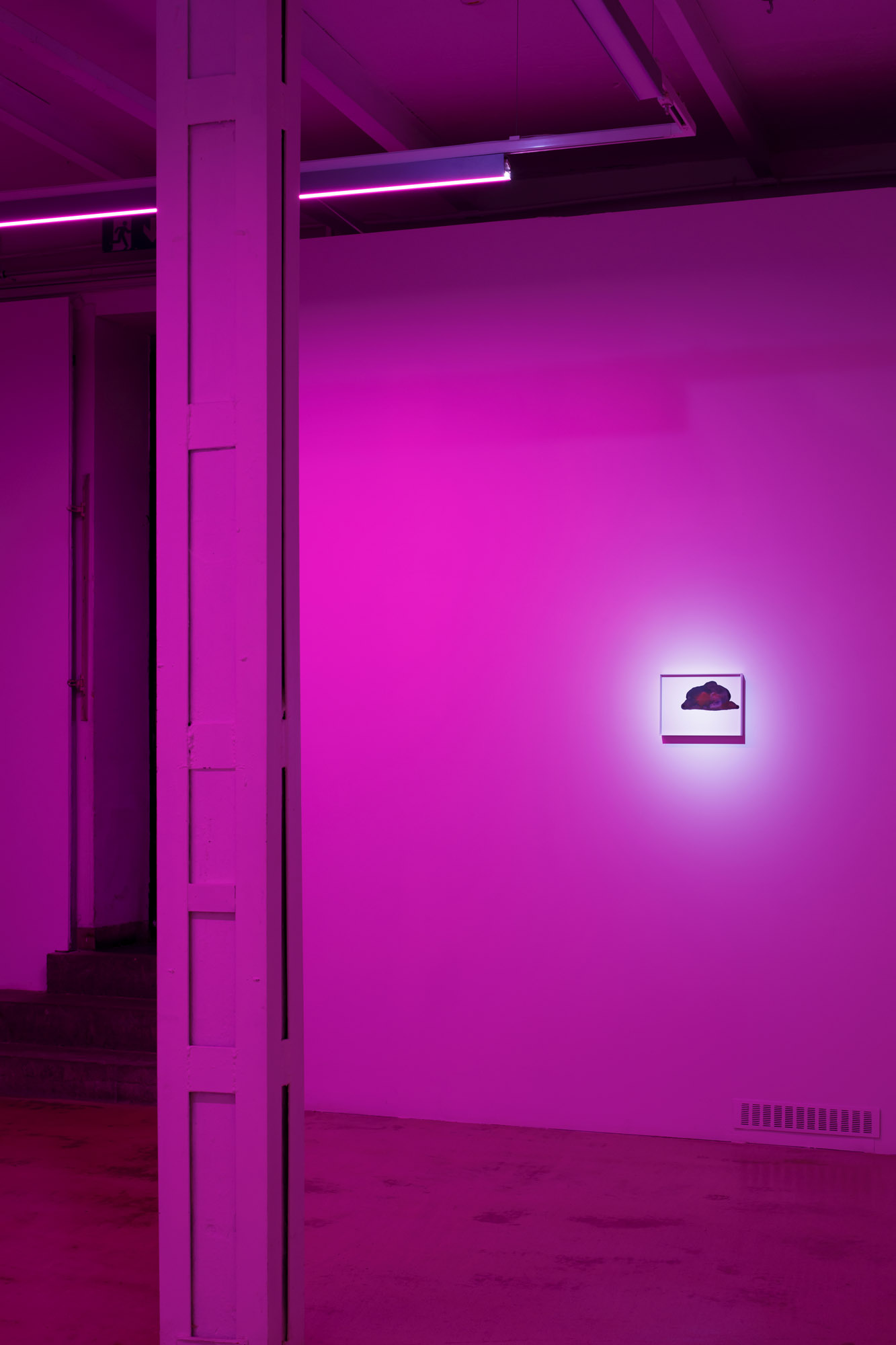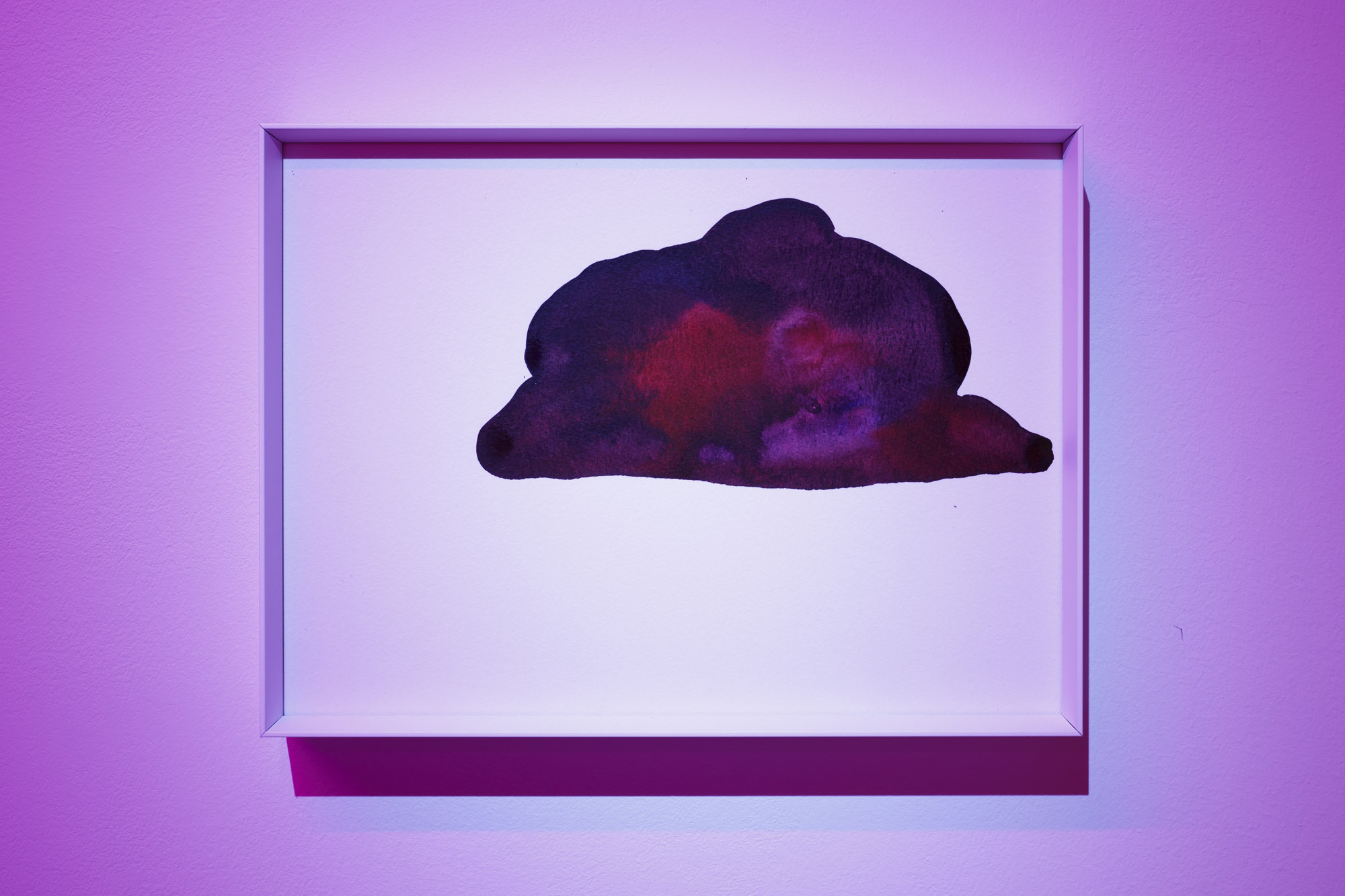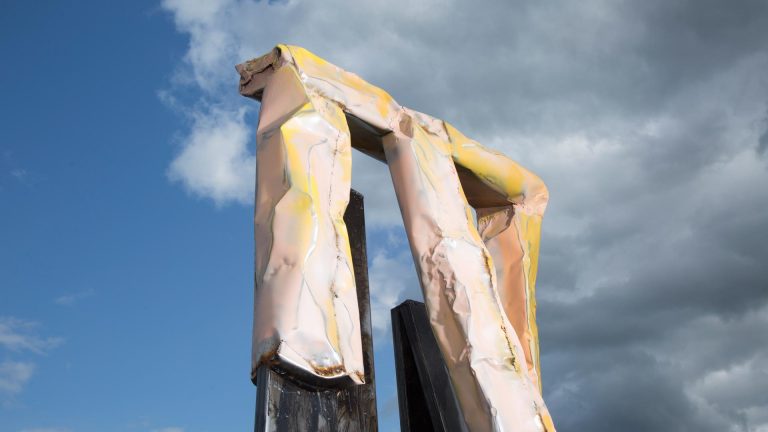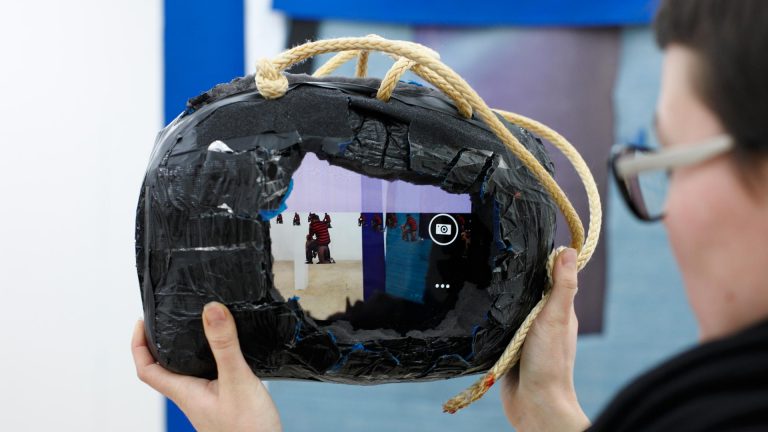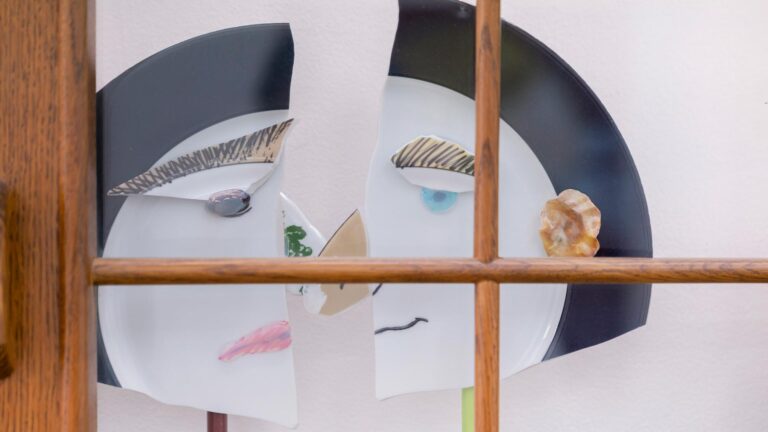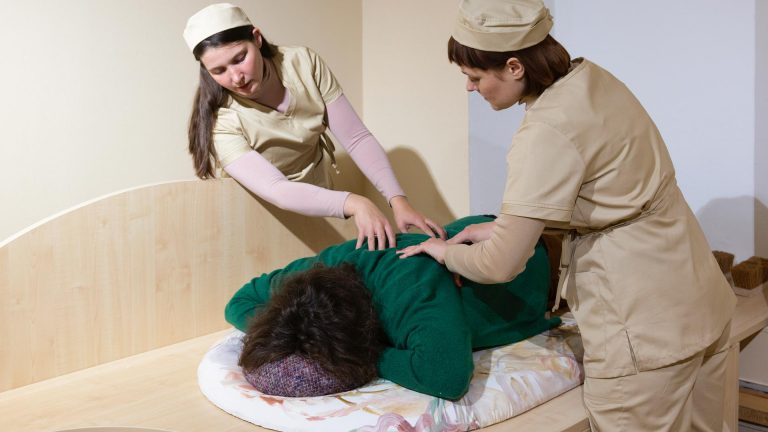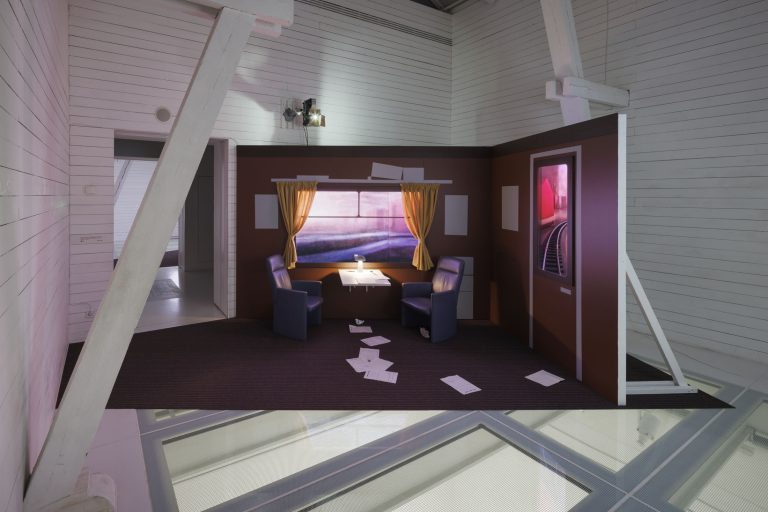Artist: Evelīna Deičmane
Exhibition title: Tanzorgan
Curated by: Zane Onckule
Venue: kim? Contemporary Art Centre, Riga, Latvia
Date: November 4, 2022 – January 29, 2023
Photography: Ansis Starks / all images copyright and courtesy of the artist and kim? Contemporary Art Centre, Riga
At the heart of Evelīna Deičmane’s third solo show at Kim? Contemporary Art Centre lies a deeply personal/sensitive concern – which nevertheless remains motivated by social processes – about getting to grips with the art of being (and staying) alive.
Currently, at a time when fictional narratives and the global reality are impressing simultaneous/overlapping dystopias upon everyone, Deičmane’s Tanzorgan conceives a territory where one can look for and identify the limit of one’s personal freedom–a place which cannot harm anyone. Acknowledging the fact that it’s impossible to arrive at a state of peace and revelation if one ignores their own body, the subject-matter of the exhibition focuses on the inner processes of human beings as well as the marks of traumatic historical events borne by them.
Remaining true to her interest of working with “materials” that are deeply personal but, at the same time, potentially concealed and di cult to grasp, Deičmane highlights the mental map characteristic of post-Soviet region. The majority of the Latvian population experience alienation from their own body, especially the generation born in the 1950s. To the generation of Deičmane’s parents, the past has lost its ability to illuminate the present. They lack the present, because everything is interpreted and judged according to past experiences, distorting the outlook and life experience they have today.
Influenced by the above considerations, Deičmane (re)constructs the missing/vanished moments of memory/experience, making use of creative imagination and elements of somatic/therapeutic analysis in order to create an installation that spans the premises of Kim?. The exhibition features newly-made and never before exhibited works utilizing the techniques of light and sound objects, drawings, textiles and metal installations, which, in a visually poetic/mediated way, explore ideas related to the experience of intergenerational trauma, the human body, and the technologies of hope.
With Tanzorgan, the artist seemingly returns to her own past and looks at that of the others in order to pick up the missing elements and experience the freedom provided by a healthy interaction between the body and the mind, seen as instruments. In the context of Tanzorgan, the meaning of survival expands far beyond merely avoiding what’s undesirable; it’s about expressing a life-a rming vision, despite the conditions that provoke all the possible varieties of fear. Deičmane’s Tanzorgan moves about and “dances”, traversing self-experience, and opens up a way for healing transformations in the deepest essence of the survivor to take place.
Evelīna Deičmane (1978) studied at the Department of Visual Communication at the Art Academy of Latvia (graduated 2007) and the Department of Experimental Media and the Department of Visual Communication at the Berlin University of the Arts (2004; 2007-2009). Her work employs mixed techniques, and she experiments with sound and visual elements. Her conceptual approach incorporates existential overtones and the human experience, creating an environment in which sadness and happiness touch upon one another and drama is dispelled by humor.
She was a participant in the 15th Sydney Biennale (2006), the 2nd Moscow Biennale (2007), the Manifesta 7 European Contemporary Art Biennale (2008), as well as the 12th Cairo International Art Biennale (2010). Deičmane represented Latvia at the 53rd Venice International Biennale with the multimedia work Season Sorrow (2009). Deičmane is the recipient of a number of important international art scholarships, including the DAAD scholarship in Berlin (2011). Her solo shows have been held in several galleries in Germany and the Czech Republic, and in 2010 her solo exhibition The Great Unrest was on show at the Kim? Contemporary Art Centre. Deičmane lives and works in Berlin and Rīga.
Jacek Sienkiewicz (b. 1976 in Warsaw) is a DJ and producer, hailed as one of the pioneers of Polish electronic music. He started DJing during the first wave of underground events in early 1990s’ Warsaw and has since played music all across the world, from performances at large festivals such as DEMF Detroit, Mutek Montreal and Transmediale Berlin to small, intimate sets in underground clubs and bars.








